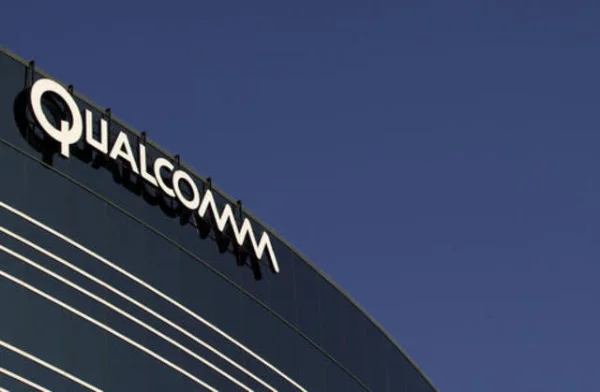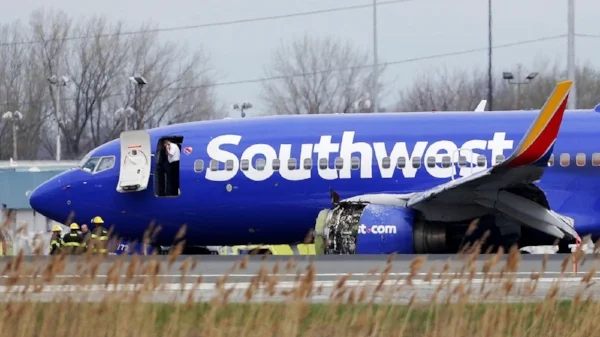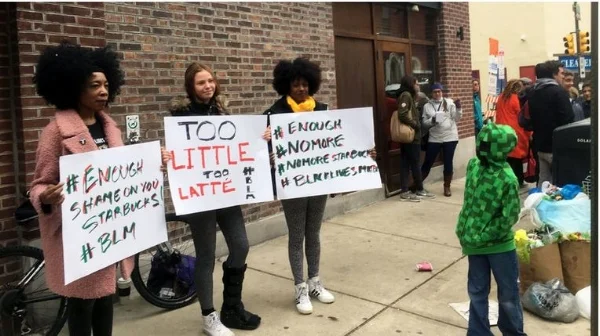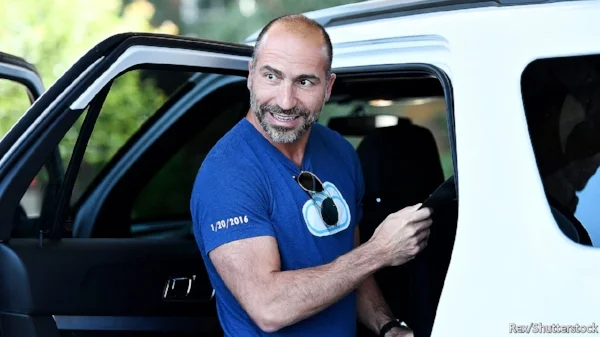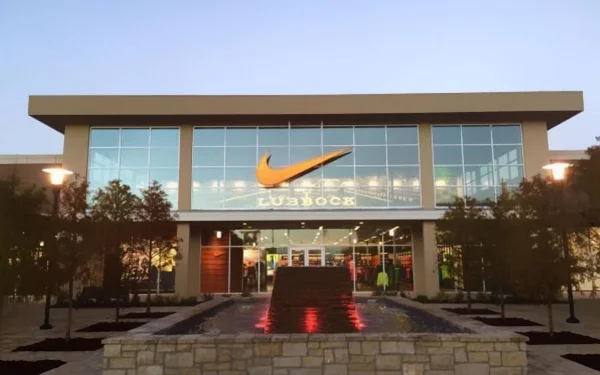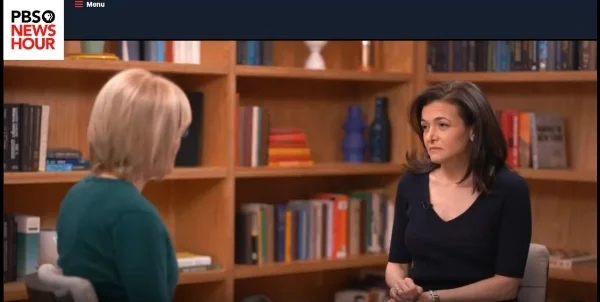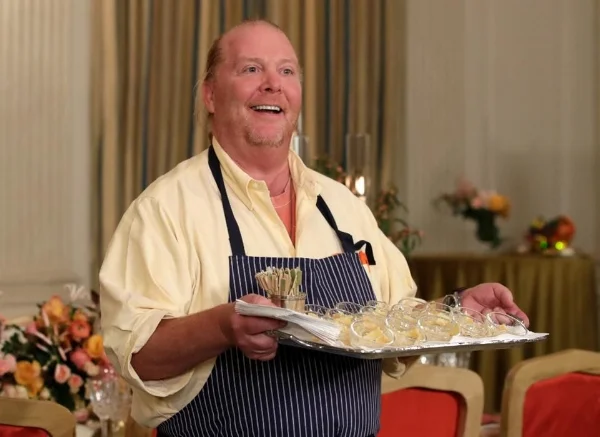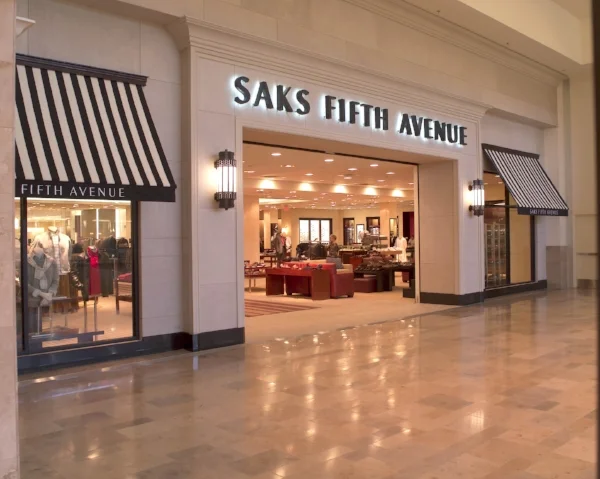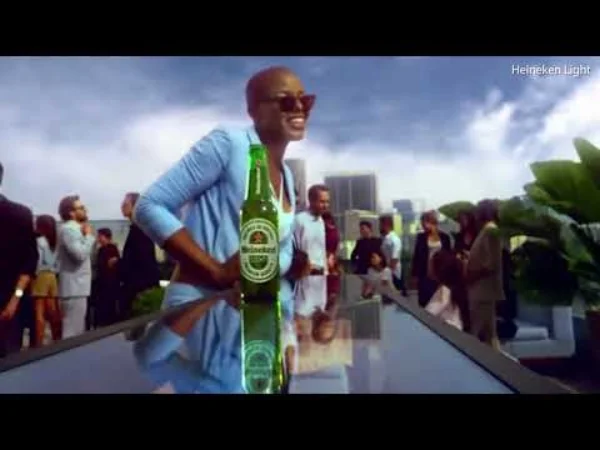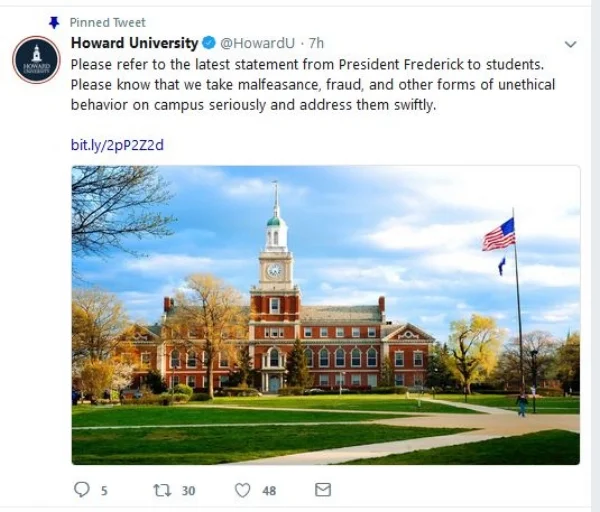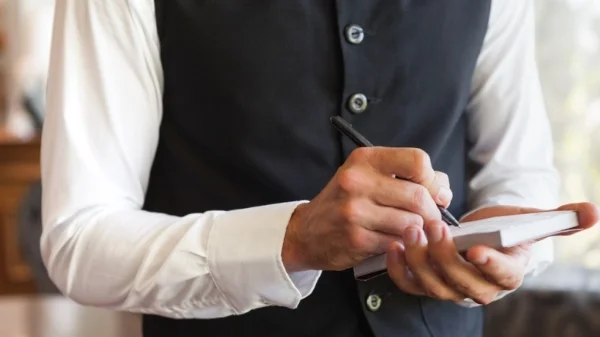Behind the Scenes at Southwest's Crisis Response
A Wall Street Journal article describes the Southwest Airlines management team's quick response during the recent engine blowout that killed a passenger. The article describes a group of executives meeting and hearing their phones alert them to a plane in trouble.
CEO Gary Kelly said, "Everybody has a checklist" and “The protocol is well understood. It’s just to affirm that this is how we are going to work together. We are here to support the NTSB (National Transportation Safety Board)." Early steps included flying employees to the Jennifer Riordan's home to help the family manage travel arrangements and stopping all advertising on social media.
Airline employees also arranged for hotels or flights for other passengers and, for those staying in a hotel, left notes under their doors offering more assistance. Based on previous compensation to passengers in similar situations, the airline gave each traveler $5,000 an a $1000 travel voucher.
Discussion:
- Read the article and identify all of the positive steps the airline took.
- Reactions are consistently positive about the airline's response. What's your view? What were the strengths of their response and what, if anything, could the airline have done differently?
- What do you think will be the long-term impacts of this incident on the brand?
- To what extent do you think compassion played a role in how Southwest is perceived?
More About the Starbucks Bias Situation
After the arrest of two black men in a Philadelphia store, Starbucks announced that 8,000 stores will close on May 29 for racial-bias training. But are some skeptical about the impact that one day of training will have, and the company seems to be imitating Chipotle's decision to close stores for food safety training. On the other hand, the company could have blamed the employee who called the police, a crisis communication strategy we have seem in many other situations.
An article in the New York Times describes racial bias research in hospitality customer service and may tell us more about the incident in Philadelphia. In one study, researchers sent emails to hotels using different names that reflected gender and race, asking for restaurant recommendations. Responses indicated racial bias, as the authors describe: "Hotel employees were significantly more likely to respond to inquiries from people who had typically white names than from those who had typically black and Asian names."
In addition, researchers analyzed "politeness," for example, whether employees wrote "best" or "sincerely" before signing their name. They were more likely to use such words when responding to guests with names that sounded white, and the authors describe another finding for this group:
They were three times as likely to provide extra information — even when the initial inquiry was just about restaurants — to white than to black or Asian people.
In addition to training, the authors suggest periodic customer service audits and consistent scripts and policies.
In a turn, Philadelphia Police Commissioner Richard Ross has apologized to the two men who were arrested. In his original video, Ross defended the officers actions and said, based on a sergeant's experience at Starbucks, "they are at least consistent in their policy." But in the news conference, Ross says, "shame on me" and "I have to do better."
Discussion:
- What's your view of the research about customer service at hotels? What does the research potentially say about the situation at Starbucks?
- Have you experienced bias in a customer service setting? What was the situation, and how did you handle it?
- How well does Ross handle the apology in the news conference? How does his identity factor into his response? How does he demonstrate authenticity, vulnerability, and other leadership character dimensions?
Layoffs at Qualcomm
A Business Insider headline puts the news and purpose right up front:
Qualcomm is reportedly laying off as many as 1,000 employees as part of a $1 billion cost savings plan
The decision comes after a hostile takeover bid from Broadcom, a competitor in Singapore. Qualcomm made a commitment to save costs to its shareholders and appears to be following through, despite that the failing takeover bid.
A Bloomberg report reminds us that the company cut jobs in 2015, as well, in response to an activist investor's interests. A New York Times article calls Qualcomm "collateral damage" in "a looming trade war between the United States and China" that may impinge the company's growth.
The company declined to comment on news stories, and nothing related to layoffs is posted on its website.
Discussion:
- Should Qualcomm executives be more forthright about the change? What, if anything, should they communicate to the public and how?
- How do you assess the admission that the layoffs are intended to ward off hostile takeovers and reduce costs? How do you think these reasons would be received by shareholders? the press? customers? employees?
- How are the news and the company's communication an issue of integrity for Qualcomm?
Passenger Dies on Southwest Flight
An engine exploded on a Southwest flight, which blew out a window and killed a passenger. The company has communicated about the tragedy consistently and in several forms.
On its website, Southwest posted several updates regarding the situation, starting with the initial event and ending with more information.
The second statement has the most detailed information and confirms the passenger's death:
Southwest Airlines Co. (NYSE: LUV) confirms an accident involving Southwest Airlines Flight 1380. The flight made an emergency diversion to Philadelphia International Airport (PHL) earlier today after the Crew reported issues with the number one engine which resulted in damage to the fuselage.
We are deeply saddened to confirm that there is one fatality resulting from this accident. The entire Southwest Airlines Family is devastated and extends its deepest, heartfelt sympathy to the Customers, employees, family members and loved ones affected by this tragic event. We have activated our emergency response team and are deploying every resource to support those affected by this tragedy. For a message from Gary Kelly, Southwest Chairman and Chief Executive Officer, please click here.
The aircraft involved today was a Boeing 737-700 (N772SW) and was enroute from New York LaGuardia (LGA) to Dallas Love Field (DAL). In total, the flight had 144 Customers and five Southwest Crewmembers onboard. We extend our heartfelt appreciation to the Southwest Pilots and Flight Attendants who acted professionally and swiftly to take care of our Customers during the emergency diversion and landing.
Finally, Southwest Airlines officials are in direct contact with the National Transportation Safety Board (NTSB) and the Federal Aviation Administration (FAA) to support an immediate, coordinated response to this accident. Southwest is in the process of gathering additional information regarding flight 1380 and will fully cooperate in an investigative process.
Please join the Southwest Family in keeping all of those affected by today's tragedy in your thoughts.
CEO Gary Kelly conveyed his sympathy in a video posted on the Twitter and during a news conference. Both are obviously scripted, but perhaps this is appropriate given the timing and severity of the situation.
Discussion:
- Assess Southwest's communications overall. What is they company doing well, and what could be improved?
- Now assess the news conference video, which is similar to the video message posted on Twitter. What delivery skills does the CEO demonstrate? What could be improved? Should he use a more natural style and "speak from the heart"? What are the potential downsides of this approach?
- How well does the company demonstrate compassion?
Starbucks Apologizes, Again
Two black men were arrested at a Philadelphia Starbucks. Witnesses say they were just waiting for a friend and asked to use the restroom. The reason for calling the police seemed to be the same: that they were just waiting for friend. But because they didn't order anything, they were asked to leave and did not. Other customers say this is common at Starbucks, and the only reason the police were called was because the two men were black.
The company, at first, gave a weak apology using unclear pronoun references (see "this" and "these"). A longer apology came from the CEO Kevin Johnson later. In the statement, he identified steps the company would take and closed with this paragraph:
Finally, to our partners who proudly wear the green apron and to customers who come to us for a sense of community every day: You can and should expect more from us. We will learn from this and be better.
Johnson also posted an apology video.
In a video statement, Philadelphia Police Commissioner Richard Ross explained the situation from his point of view and defended the officers' actions. He also said that all officers get implicit bias training and gave an example of a police sergeant who was also denied access to a Starbucks bathroom. Ross's conclusion was that "they are at least consistent in their policy." Of course, not everyone agrees.
Discussion:
- Analyze Johnson's statement. Who are his primary and secondary audiences? What are his communication objectives, and how well did he achieve them?
- What organizational strategy does Johnson's statement illustrate? How do you assess his tone and writing style?
- What is an unclear pronoun reference, and how are they used in the first apology?
- What's your view of the situation? Did Starbucks do wrong? If so, at what point(s)? Are you boycotting Starbucks, as some promote, as a result?
- Which leadership character dimensions are illustrated by this example?
"Nut Rage": The Sequel
You may remember the so-called "nut rage" incident at Korean Airlines in 2015, when a company executive became enraged about how macadamia nuts were served on a flight. Cho Hyun-ah, a daughter of the company chairman, threw a document at the head flight attendant, forced him to kneel and apologize, and ordered the plane back to the gate so the flight attendant could be removed. Cho didn't know that the rules had changed: nuts were served in the bag instead of on a plate, as she expected, because of nut allergies. In February of this year, a Washington Post article details how the flight attendant has suffered since the incident.
At the same, people were incensed by what they considered entitlement of the chaebol families, who run Korea's powerful conglomerates. Some believe they act as if they are "above the law," and this situation was symbolic of that criticism.
This week, Cho's younger sister, Hyun-min, is criticized for losing her temper during a marketing department meeting. Some say she threw water at an employee's face, but the airline reports that she threw it on the floor.
Either way, unlike her sister, Hyun-min immediately apologized via text message to the employee and on her personal Facebook page: “I apologize with my head down for my foolish and reckless behavior."
Discussion:
- How else should the company respond to this incident? What should executives have learned from the 2015 situation?
- How could you relate this incident to communication and character issues such as civility in the workplace, conflict management, and humility?
Uber CEO Compares Self-Driving Cars to Student Drivers
In defense of autonomous cars, Uber CEO Dara Khosrowshahi said, "Ultimately, self-driving cars will be safer than humans. But right now self-driving cars are learning. They’re student drivers.” On NBC's Today Show, Khosrowshahi confirmed that the company will continue its self-driving program despite a fatal crash last month in Arizona.
In the interview, when asked about Facebook and other technology companies facing privacy and safety issues, Khosrowshahi said he considers, "the challenges of technology getting into everyday life and the responsibilities that come with it." He repeated "responsibility" twice more within about the first minute of the interview. Like Mark Zuckerberg during the recent hearings on Capitol Hill, he said, "I welcome regulation," and "we're partnering with regulators."
Also as Zuckerberg clarified with lawmakers, Khosrowshahi said they don't sell data; however, he also said they don't "monetize data," which Facebook cannot say with its business model to sell ads.
Discussion:
- What principles of persuasion does Khosrowshahi demonstrate in this interview? Consider logical argument, emotional appeal, and credibility.
- What principles of leadership character does he demonstrate?
- What do you consider the strengths of this interview? What could Khosrowshahi improve?
Volkswagen Replaces Chairman
Three years after the emissions scandal, Volkswagen is replacing another chairman. Matthias Müller replaced Martin Winterkorn, who was ousted soon after the news broke in 2015. But Müller was another insider and hasn't led the turnaround the board expected.
Like Winterkorn, Müller struggled with public relations. During a 2016 NPR interview, Müller claimed the company misunderstood the American environmental law: “We didn’t lie. We didn’t understand the question [at] first.” After much criticism, VW’s communications department asked for another interview, which was granted. He delivered a better apology but blamed the first interview on “all these colleagues of yours and everybody shouting.” In other words, it was noisy.
As is customary in corporate change announcements, Chairman of the Supervisory Board Hans Dieter Pötsch spoke positively about the outgoing executive:
“Matthias Müller has done outstanding work for the Volkswagen Group. He assumed the chairmanship of the Board of Management in the fall of 2015 when the Company faced the greatest challenge in its history. Not only did he safely navigate Volkswagen through that time; together with his team, he also fundamentally realigned the Group’s strategy, initiated cultural change and, with great personal commitment, made sure that the Volkswagen Group not just stayed on track but is now more robust than ever before. For that, he is due the thanks of the entire Company.”
The new chairman, Dr. Herbert Diess, offers more hope. Diess joined the board in 2015 and is known for having conflicts with the union and for cost-cutting. He may shake up the status quo at VW and inspire real action. The company has aggressive plans, including building greener cars—for real this time.
Image source (VW cover).
Image source (Diess).
Discussion:
- Assess the company's statement about this change. Who are the primary and secondary audiences? What are the communication objectives? How well does the statement meet those objectives?
- Why do these statements typically include positive quotes about outgoing executives, even if they are asked to leave or, as this statement indicates, they leave "by mutual agreement"?
- What lessons do you think Volkswagen learned since the scandal?
- Why would the board appoint someone who is considered divisive?
Mariah Carey Talks About Having Bipolar Disorder
In 2001, singer Mariah Carey learned she had bipolar disorder, and now she is admitting it to the world. In an People magazine cover story, Carey talks about her initial denial and her decision to open up about her diagnosis:
“Until recently I lived in denial and isolation and in constant fear someone would expose me. It was too heavy a burden to carry and I simply couldn’t do that anymore. I sought and received treatment, I put positive people around me and I got back to doing what I love — writing songs and making music.”
“I’m just in a really good place right now, where I’m comfortable discussing my struggles with bipolar II disorder. I’m hopeful we can get to a place where the stigma is lifted from people going through anything alone. It can be incredibly isolating. It does not have to define you and I refuse to allow it to define me or control me.”
Bipolar disorder, also called manic-depressive disorder, affects about 5.7 million adults in the U.S., which is about 2.6% of the population.
Reactions to the news seem mostly positive, with comments such as this on Twitter:
This story reminds me of a TedX talk, "Everyone Is Hiding Something" about a woman's struggle with an eating disorder.
Discussion:
- What are the potential personal and professional consequences to Mariah Carey of going public with her diagnosis?
- What do you hide about yourself that might be useful for others to know?
- What is the value of admitting personal struggles in the workplace?
- How does Mariah Carey's story demonstrate leadership character dimensions, such as courage, compassion, authenticity, and vulnerability?
Zuckerberg Testifies Before Congress
In many hours of testimony, Facebook CEO Mark Zuckerberg did his best to address lawmakers' questions about data privacy and, surprisingly, how Facebook works. Senators and Members of Congress asked questions about texting, about how the company makes money without a subscription model (Zuckerberg: "We sell ads."), whether Facebook owns users' data, whether Facebook sells data, how many "data categories" Facebook collects, and so on. This video compilation does not reflect well on our lawmakers.
Zuckerberg himself seemed surprised by some of the questions and wasn't fully prepared to answer them. A reporter captures a photo of Zuckerberg's notes, which are what we would expect, but it's fun (in a voyeuristic way) to see them.
On the second day of testimony, questions improved, and many focused on Facebook's treatment of conservative political views. These were fair questions, and Zuckerberg admitted they had made mistakes in screening some content as inappropriate. But several representatives seemed to ask similar questions about this and about the consent agreement with the FCC, as if the question hadn't been asked just moments earlier.
In a New York Times Daily Podcast, reporters discussed Zuckerberg's continued references to starting Facebook in his dorm room. They believed the strategy was a good one for demonstrating his humanity (emotional appeal) but was potentially damaging for his credibility because it reminded lawmakers that he is only 33 years old. A seat chair, which internet trolls called a "booster seat," didn't help.
Wall Street responded well to Zuckerberg's testimony, with the stock price rising both days.
Discussion:
- What's your view of Zuckerberg's testimony? Watch as much as you can tolerate.
- Should lawmakers have a better understanding of Facebook? What is their level of responsibility?
- Identify a few specific questions and Zuckerberg's answers. What leadership character dimensions does he demonstrate, and how could he have improved?
- Watching the testimony, how would you assess his authenticity? Do you know more about him as a person? Should we?
Howard University Reports on Misappropriated Funds
Howard University's investigation has concluded that $369,000 had been misappropriated by six employees who were terminated last year. A full report by the university identifies how they "double dipped" by receiving both tuition assistance and university grants between 2011 and 2016.
In a cover letter to the report, President Wayne A.I. Frederick wrote, “Howard University is committed to uncovering any impropriety in the administration of university-provided financial aid and federal student aid, to remediating all problems identified during this investigation, and to maintaining a robust compliance program to prevent any inappropriate dealings in the administration of financial aid."
A Washington Post article reports that the university tried to avoid going public before the review was completed, but an article posted online made this impossible. Student protests, which went on for more than a week, also may have sped up the timing.
Discussion:
- What business writing principles does the report demonstrate and fail to demonstrate? How could the report be improved?
- Assess the president's cover letter. Who are his primary and secondary audiences, and what are the communication objectives? How well does the letter achieve those objectives?
- What can the university do now to restore trust?
- How well does the university take responsibility for the situation?
Nike Memo Describes Diversity Failings
The head of HR at Nike wrote a memo describing how the company has not lived up to plans to promote women and people of color. Nike has been grappling with complaints about its "boys-club culture," and the memo may have worsened the situation.
When complaints surfaced, Chief Executive Mark Parker said, “When we discover issues, we take action. We are laser-focused on making Nike a more inclusive culture and accelerating diverse representation within our leadership teams."
Weeks later, HR Chief Monique Matheson wrote in the memo that the company wants to “to create a culture of true inclusion. As part of our plan, we need to improve representation of women and people of color.” She also wrote, “While we’ve spoken about this many times, and tried different ways to achieve change, we have failed to gain traction—and our hiring and promotion decisions are not changing senior-level representation as quickly as we have wanted."
Of Nike's 74,000 employees, only 29% of vice presidents are women and, in the U.S., only 16% are nonwhite. In the memo, Matheson also reported that men, women, and people of color earn about the same, although she acknowledged, "We’ve also heard from some of you that this result does not reflect your personal experience" and promised to do more research into pay equity.
Discussion:
- How does the memo reflect both positively and negatively on Nike?
- Should Matheson have avoided putting such information in a memo, knowing that it could be made public? Or, do you think she intended for it to go public?
- How do executives balance internal communication and the possibility of messages being leaked to the press?
- In what ways does this situation demonstrate vulnerability?
An Interview with Sheryl Sandberg
During an interview with Judy Woodruff on PBS NewsHour, Facebook COO Sheryl Sandberg admitted mistakes and discussed plans for improving users' privacy. Sandberg didn't shy away from tough questions about Facebook's role in protecting users' information and admitted that the site had an important role during the 2016 presidential election, at least to get people to register to vote.
On whether Cambridge Analytica still has data, Sandberg admitted, "We were given assurances by them years ago that they deleted the data. We should’ve followed up. That’s on us. We are trying to do a forensic audit to find out what they have." She also said the company had "under-invested" in ways to protect users' information.
Viewers may notice that Sandberg repeatedly says versions of "That's a very good question." This could be a tactic to delay responding, or it could be that Woodruff asks good questions! Sandberg would be the first to acknowledge that many of the questions are ones the company leaders are asking themselves at this point. As pioneers, Facebook executives are reconsidering how people use the site and for what purpose.
Discussion:
- Assess Sandberg's presentation skills. How well does she deliver her ideas and address questions?
- What principles of persuasion does Sandberg demonstrate in the interview?
- What else, if anything, could Sandberg have said during this interview to rebuild trust in the company?
Mario Batali Wants to Move On
Is it too soon? Mario Batali, accused of sexual harassment and removed from the company bearing his name, is exploring a new venture. In December, reports of sexual misconduct rattled the Batali & Bastianich Hospitality Group, and Batali admitted that accusations “match up with ways” he behaved. At the time, he emailed an apology but lost ground when he included a "P.S." with a recipe for making cinnamon rolls.
Now, about four months later, people report that Batali is exploring his options. Reports say he is considering moving to the Amalfi Coast, aiding displaced Rwandans, or creating a new company.
A New York Times article speculates that Batali may be in a good position to return to public life:
He still has legions of fans and colleagues who admire and respect his generosity, culinary knowledge and charisma. Many still post their interpretations of his recipes on Instagram, ask him for selfies on the street or urge his return to “The Chew” on Facebook. His restaurants continue to attract customers.
Friends also say that he is truly taking time to be introspective and to learn from his mistakes. But not everyone agrees that a comeback would be appreciated. Anthony Bourdain, for example, isn't ready:
Retire and count yourself lucky, I say that without malice, or without much malice. I am not forgiving. I can’t get past it. I just cannot and that’s me, someone who really admired him and thought the world of him.
Discussion:
- What's your view? Is it too soon, or is the time right for a Batali return? What should he consider in making this decision? What are the potential implications for women who complained about his behavior and for the company?
- Batali mentions wanting to understand his "blind spots." What does he mean by this?
Major Retailers Respond to Data Breach
Retailers Saks Fifth Avenue and Lord & Taylor experienced a data breach affecting about 5 million customers. Hackers JokerStash Syndicate (also known as Fin 7) stole and resold credit and debit card information retrieved during the sales process.
Both companies are owned by Hudson's Bay Co., and we see that their customer messages have been coordinated. On both retailers' websites, text appears at the top of the page in a yellow box. When you click on the "Important Message" link, you see two statements dated one day apart and a list of FAQs.
The second message is below:
April 2, 2018 Statement
Updated Statement
We recently became aware of a data security issue involving customer payment card data at certain Saks Fifth Avenue, Saks OFF 5TH, and Lord & Taylor stores in North America. We identified the issue, took steps to contain it, and believe it no longer poses a risk to customers shopping at our stores. While the investigation is ongoing, there is no indication that this affects our e-commerce or other digital platforms, Hudson's Bay, Home Outfitters, or HBC Europe. We deeply regret any inconvenience or concern this may cause.
We wanted to reach out to our customers quickly to assure them that they will not be liable for fraudulent charges that may result from this matter. Once we have more clarity around the facts, we will notify our customers quickly and will offer those impacted free identity protection services, including credit and web monitoring. We encourage our customers to review their account statements and contact their card issuers immediately if they identify activity or transactions they do not recognize.
We are working rapidly with leading data security investigators to get our customers the information they need, and our investigation is ongoing. We also are coordinating with law enforcement authorities and the payment card companies. For further information, please visit https://www.saksfifthavenue.com/security-information/notice.html, https://www.saksoff5th.com/security-information/notice.html, or https://www.lordandtaylor.com/security-information/notice.html. To speak with a dedicated call center representative, beginning April 4, 2018, you can call 1-855-270-9187, Monday - Saturday, 8 am - 8 pm CT.
Discussion:
- Read the statements on the retailers' websites. Identify the primary and secondary audiences and communication objectives.
- How well do the statements achieve their objectives? What else, if anything, should the companies communicate at this point?
- To what extent are the retailers holding themselves accountable for the breach?
Heineken Pulls "Lighter Is Better" Ad
Heineken seemed to be playing with fire in a new beer ad, "Sometimes, Lighter Is Better." The commercial shows a bartender sending a light beer to a light-skinned woman. On its way down the bar, the beer passes darker-skinned people. The promotion was for 99-calorie Heineken Light.
Chance the Rapper is one of many who called the ad racist, and he accused the company of intentionally trying to attract attention.
An AdAge article explains that the ad traveled from Europe last summer, where it received little attention, to the recent release in the U.S. As one agency owner explains, "What sometimes is acceptable in Europe isn't acceptable in the U.S. and I think that a lot of time the failure comes in not really evaluating the impact that it is going to have in a particular region."
Heineken pulled the ad, and spokesman Bjorn Trowery published a statement:
"For decades, Heineken has developed diverse marketing that shows there’s more that unites us than divides us.
"While we feel the ad is referencing our Heineken Light beer—we missed the mark, are taking the feedback to heart and will use this to influence future campaigns."
Discussion:
- Would you call the ad racist? Why or why not?
- Do you think Heineken intentionally created a controversial ad? What evidence do you find either way?
- How is this an issue of authenticity and integrity for the company?
Howard University Responding to Embezzlement
Six student employees were terminated by Howard University for embezzling financial aid funds. The students made up fake scholarships and found other ways to steal what could be more than $1 million.
On Twitter, the student association unleashed its frustration with the university's response. In a statement, President Wayne Frederick expressed empathy for this frustration and for other reactions:
Hearing about the mishandling of funds at the University can be difficult to process. I can also understand how upsetting it is to feel that the University has not communicated with you regarding this incident. The goal established at the onset of this investigation was to conduct it in a confidential manner that ensured a thorough examination of the issues without jeopardizing the integrity of the findings. However, that does not mitigate the sense of mistrust that many students and members of our community feel right now. We understand that and we hear you.
The statement also describes plans for investigating the charges and ends on a positive note.
Discussion:
- The above paragraph from the president's statement raises an interesting conundrum: how do leaders ensure both privacy and transparency? The same issue is relevant to investigating sexual harassment claims. What are your thoughts? How, if at all, is it possible to achieve both?
- Assess the president's statement. Who is the audience, and what are the communication objectives? How is the statement organized? How would you describe the writing style, tone, and so forth?
- How well does the president's statement demonstrate accountability?
Advisor at Morgan Stanley Accused of Abuse
A New York Times article chronicles abuse allegations of a financial advisor and Morgan Stanley's decision to retain him. Douglas E. Greenberg is a member of the firm's “Chairman’s Club,” which recognizes top producers who meet identified "conduct and compliance standards.”
But, for years, Morgan Stanley executives knew of allegations of abuse against Greenberg—not by employees but by four women who had relationships with him and had sought protection against him. Greenberg has also been charged with violating restraining orders.
You may be thinking that these external relationships should not impact Greenberg's job. The article presents a different perspective:
But employees in the finance industry—especially those who manage money for clients—are judged in part on their character. That puts the onus on companies, and regulators, to police their conduct even outside the office.
Only after an inquiry from a Times reporter did the company place Greenberg on administrative leave. A spokesperson said, "We are committed to maintaining a safe and professional work environment and will take appropriate action based on the facts of the matter.”
Discussion:
- How could Greenberg's behavior affect the firm?
- What's your view of Greenberg's position at the firm? What should the executive team do?
- How is this situation a potential matter of integrity for Morgan Stanley?
Defense for Rudeness: "I'm French"
A waiter in at Milestones Bar + Grill in Vancouver, British Columbia, was fired for being rude. Guillaume Rey doesn't argue the point, but he has filed a lawsuit claiming his termination is discriminatory.
As part of the suit against the parent company, Rey said the decision was "discrimination against my culture," which “tends to be more direct and expressive." On the other hand, Rey signed documentation with the restaurant that states, “intentionally speaking to a Guest or Associate in a rude or unfriendly manner" may be cause for termination.
The restaurant tried to get the case dismissed but failed. A judge explains the ruling:
Given that there is at least some evidence supporting an inference that Mr. Rey’s ancestry was a factor in the termination, and given how little other information I have about what happened, I cannot find that the Restaurant has met its burden on this application.
Discussion:
- Read the court's findings. What were the restaurant's arguments? What are Rey's arguments?
- Do you agree with the judge's decision at this point? Why or why not?
- How does this situation demonstrate humility or a lack of humility?
How to Talk About Failure During an Interview
A new podcast, Change Agent, explores creative solutions to people's problems. In one episode, "Telling the Truth," a recovering alcoholic talks about her challenges during job interviews. Should she explain the gap in her resume?
For help, the moderator looks to Domino's, which had notoriously bad reviews of its pizza. CEO J. Patrick Doyle explains how the company took an open approach to admitting failure. Doyle led a turnaround by running commercials admitting criticism about their pizza, for example, that the crust "tastes like cardboard." The results are documented in a Domino's video posted on YouTube.
The woman looking for a job was able to apply what she learned during a mock interview. Part of her recovery process is about being truthful, so was open to the strategy.
During the podcast, we hear the woman admitting her challenges, although she goes on longer than may be useful or appropriate during a job interview. Still, the interviewer reacted positively to her telling the truth.
Discussion:
- What are the risks to admitting failure in this way?
- How could you apply this strategy to your own job search? What failing or misstep could you explain in a way that demonstrates self-reflection and learning from failure?
- In what ways does the podcast demonstrate authenticity and vulnerability?





